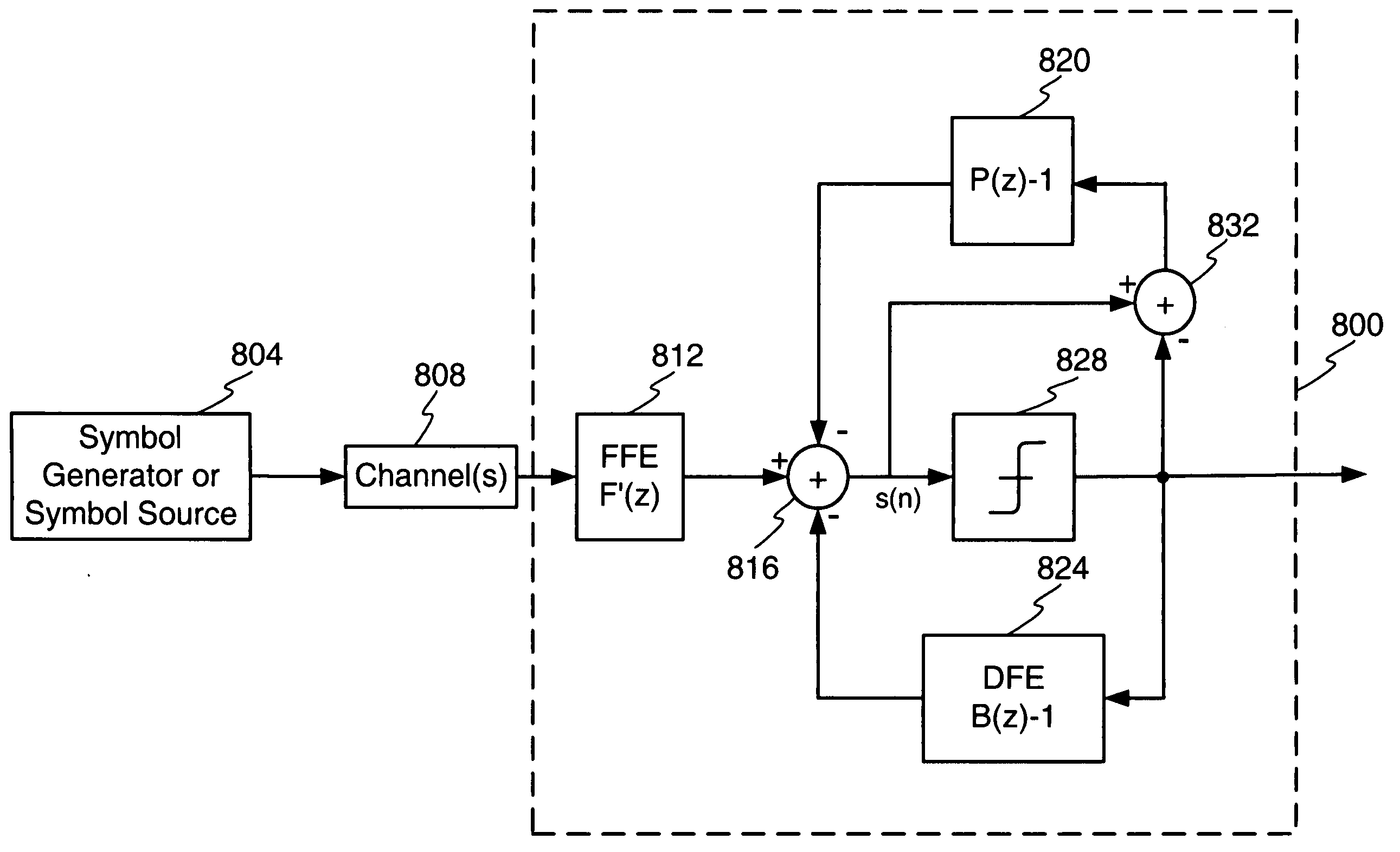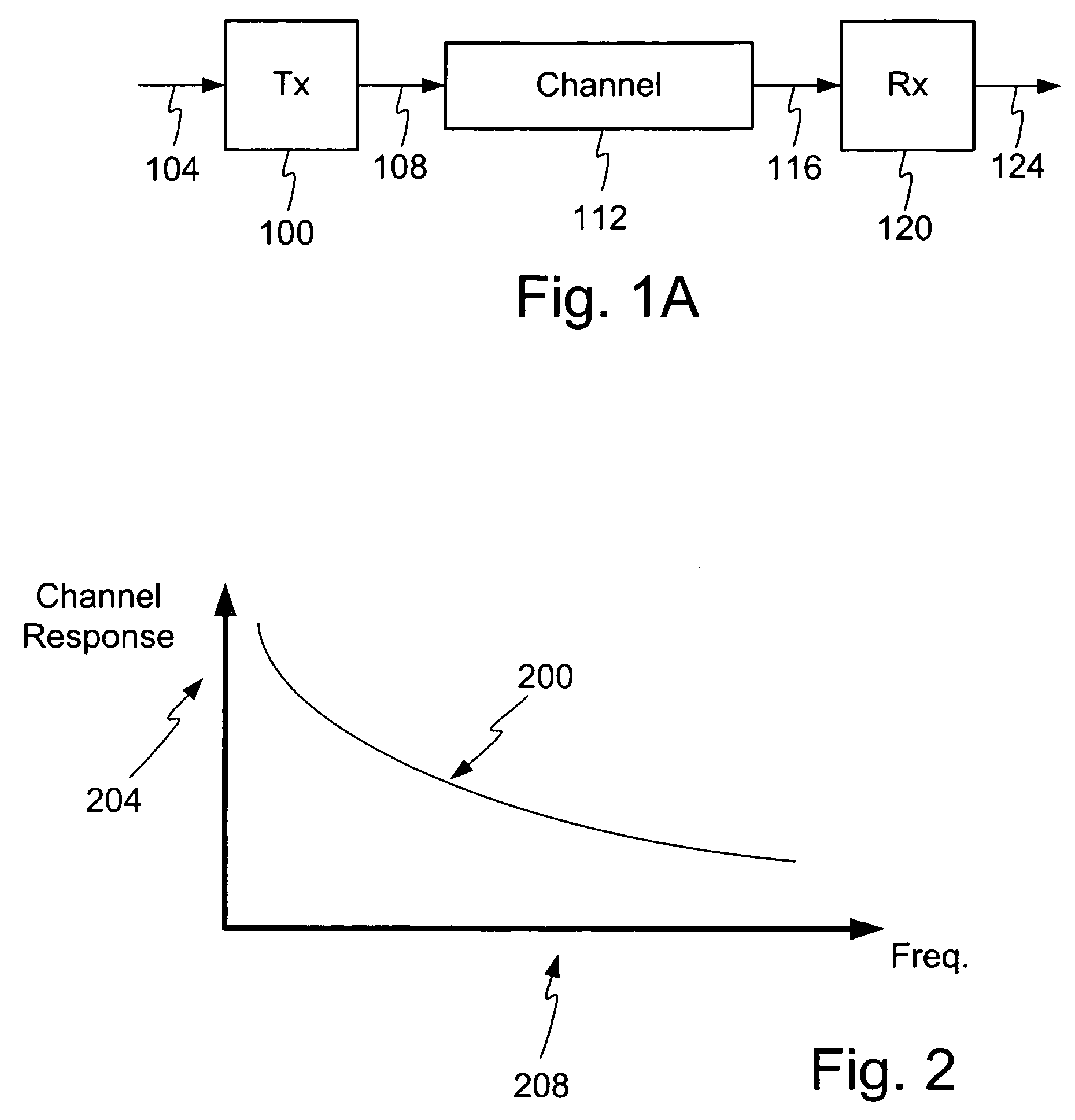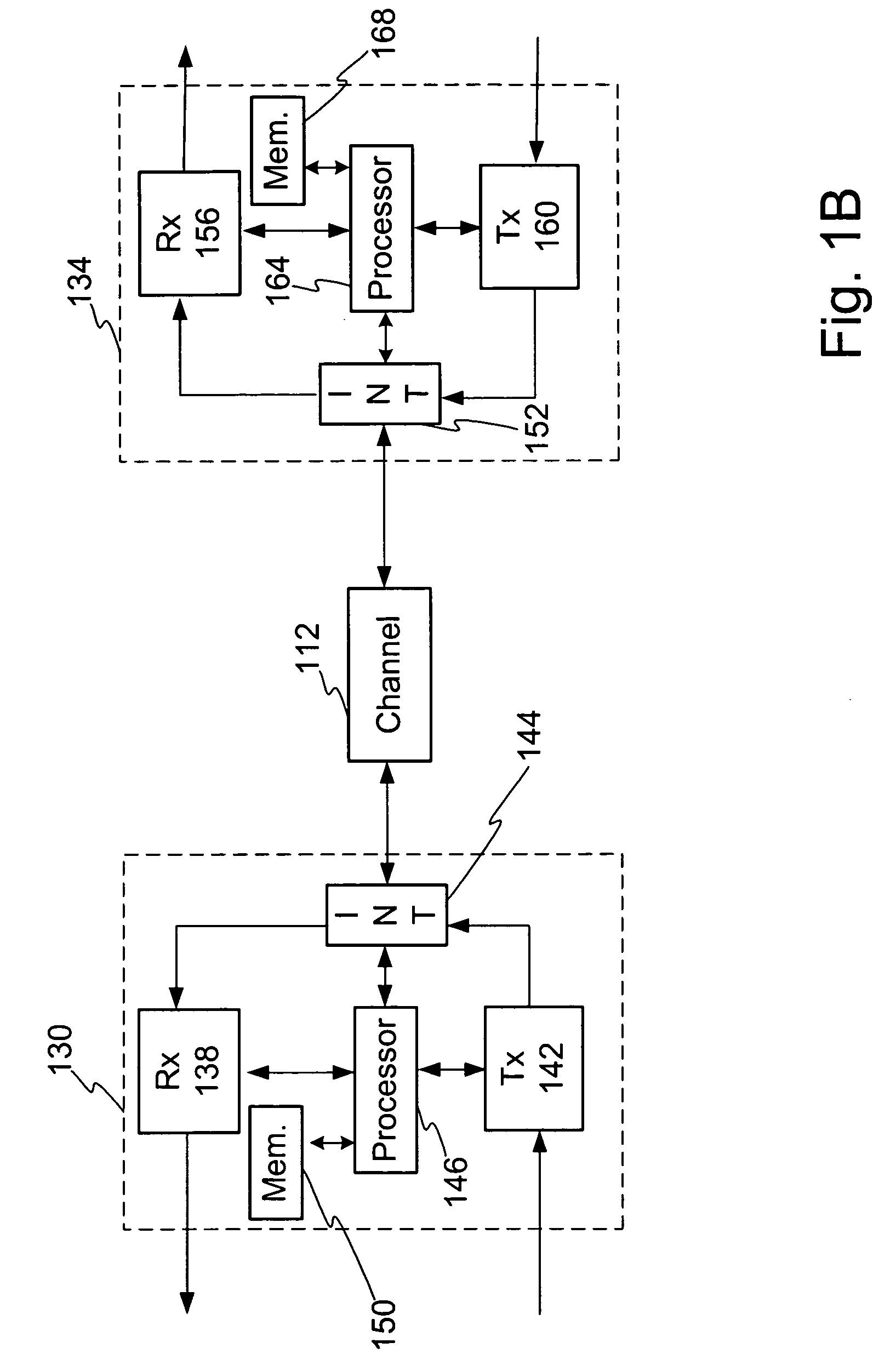Method and apparatus for channel equalization
- Summary
- Abstract
- Description
- Claims
- Application Information
AI Technical Summary
Benefits of technology
Problems solved by technology
Method used
Image
Examples
Embodiment Construction
FIG. 1A illustrates an example embodiment of a transmitter and a receiver. As shown, a transmitter 100 includes a transmitter input 104 and a transmitter output 108. The output 108 of the transmitter 100 connects to a channel 112. The channel 112 connects to an input 116 of a receiver 120. The receiver 120 includes a receiver output 124. The receiver output 124 may connect to a computing device, terminal, switch, router, network processing device, or any device configured to receive data over the channel 112.
The transmitter 100 may comprise any device configured to transmit data from a first location to a second location. Likewise, the receiver 120 may comprise any device configured to receive data transmitted from the first location to the second location. It is contemplated that a transmitter 100 and receiver 120 may be located at both ends of the channel 112 to enable transmission in both directions. In one embodiment the transmitter 100 and receiver 120 are located in a network...
PUM
 Login to View More
Login to View More Abstract
Description
Claims
Application Information
 Login to View More
Login to View More - R&D
- Intellectual Property
- Life Sciences
- Materials
- Tech Scout
- Unparalleled Data Quality
- Higher Quality Content
- 60% Fewer Hallucinations
Browse by: Latest US Patents, China's latest patents, Technical Efficacy Thesaurus, Application Domain, Technology Topic, Popular Technical Reports.
© 2025 PatSnap. All rights reserved.Legal|Privacy policy|Modern Slavery Act Transparency Statement|Sitemap|About US| Contact US: help@patsnap.com



